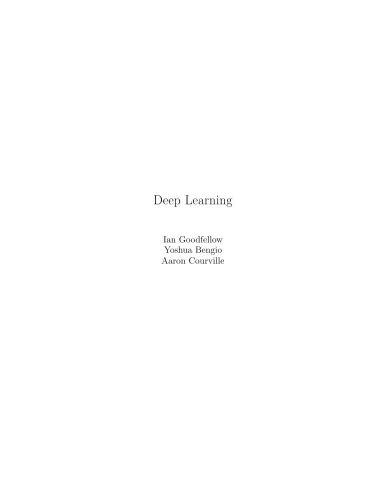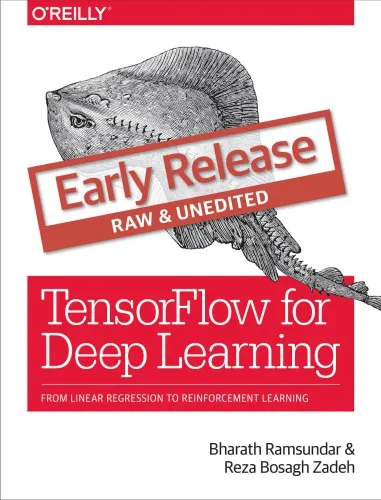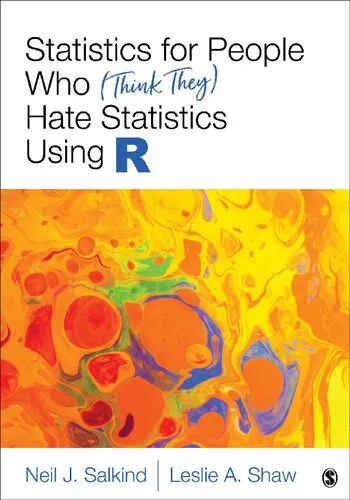Group Recommender Systems. An Introduction
4.5
Reviews from our users

You Can Ask your questions from this book's AI after Login
Each download or ask from book AI costs 2 points. To earn more free points, please visit the Points Guide Page and complete some valuable actions.Related Refrences:
Introduction to "Group Recommender Systems: An Introduction"
"Group Recommender Systems: An Introduction" by Alexander Felfernig et al. is an essential resource for understanding the rapidly growing field of group recommender systems. As technology evolves and collective decision-making becomes a cornerstone of countless domains—ranging from entertainment to business planning—this book bridges the gap between theory and application, equipping readers with the knowledge to develop, evaluate, and refine group recommendation algorithms. Whether you're a researcher, developer, or practitioner, this book brings clarity to the intricacies of designing systems that cater to the preferences of multiple users simultaneously.
Detailed Summary
This book delves deep into the mechanics and principles behind group recommender systems. Unlike traditional recommendation systems designed for individual users, group recommenders are tailored to handle the dynamics, conflicts, and diversity of shared decision-making. The book begins with an introduction to recommendation systems and explores the unique challenges and advantages of adapting these systems for groups. Through logical progression, the authors explain the core concepts, including preference aggregation, conflict resolution, and the technical frameworks required to develop robust group recommenders.
Later chapters illuminate various application areas for group recommendation systems, from recommending movies for friends to planning family vacations or collaborative productivity tools for the workplace. The book also highlights real-world implementation issues, such as handling incomplete or conflicting data, improving fairness, and ensuring user satisfaction across diverse stakeholder groups.
A strong emphasis is placed on empirical validation, with detailed explanations of evaluation metrics and experimental methodologies used to analyze group recommender systems. By blending academic rigor with practical insight, the authors ensure that readers are equipped not only with theoretical understanding but also with actionable strategies for system development and enhancement.
Key Takeaways
- Comprehensive overview of group recommender systems, covering both foundational concepts and advanced topics.
- Insight into the psychology of group decision-making and how it influences design choices.
- Strategies for preference aggregation and conflict resolution in group recommender scenarios.
- Detailed examination of the challenges of fairness, transparency, and trust in group recommendations.
- Practical guidelines for implementing and evaluating group recommender systems in real-world settings.
Famous Quotes from the Book
"Addressing the needs of a group rather than an individual shifts the paradigm of recommendation systems design, requiring new approaches to modeling preferences and resolving conflicts."
"The success of a group recommender system lies not just in finding common ground but in creating satisfaction for all members involved."
"Adaptation and personalization are as vital for groups as they are for individuals—what differs is the complexity of accommodating shared preferences."
Why This Book Matters
Group recommender systems are becoming increasingly relevant in our interconnected world. From streaming platforms curating shows that satisfy multiple viewers to collaborative tools enhancing productivity in professional environments, the need for effective group-based decision-making cannot be overstated. This book is a cornerstone for anyone looking to navigate this emerging field, offering solid grounding in theoretical concepts while addressing real-world challenges practitioners face.
By focusing on the diversity of group needs and the underlying processes of interaction and satisfaction, the authors highlight the importance of human-centric design in artificial intelligence systems. The frameworks and methodologies presented in this book can be adapted to various applications, equipping readers with practical knowledge that extends beyond the scope of recommendation systems into other fields where group dynamics are critical.
"Group Recommender Systems: An Introduction" is not just a technical manual—it is a comprehensive guide to understanding how technology can bring people together by aligning diverse preferences and enabling consensus. It serves as a beacon for researchers, developers, and decision-makers aiming to grasp the potential of group recommendations in the modern digital landscape.
Free Direct Download
You Can Download this book after Login
Accessing books through legal platforms and public libraries not only supports the rights of authors and publishers but also contributes to the sustainability of reading culture. Before downloading, please take a moment to consider these options.
Find this book on other platforms:
WorldCat helps you find books in libraries worldwide.
See ratings, reviews, and discussions on Goodreads.
Find and buy rare or used books on AbeBooks.
1465
بازدید4.5
امتیاز0
نظر98%
رضایتReviews:
4.5
Based on 0 users review
Questions & Answers
Ask questions about this book or help others by answering
No questions yet. Be the first to ask!














